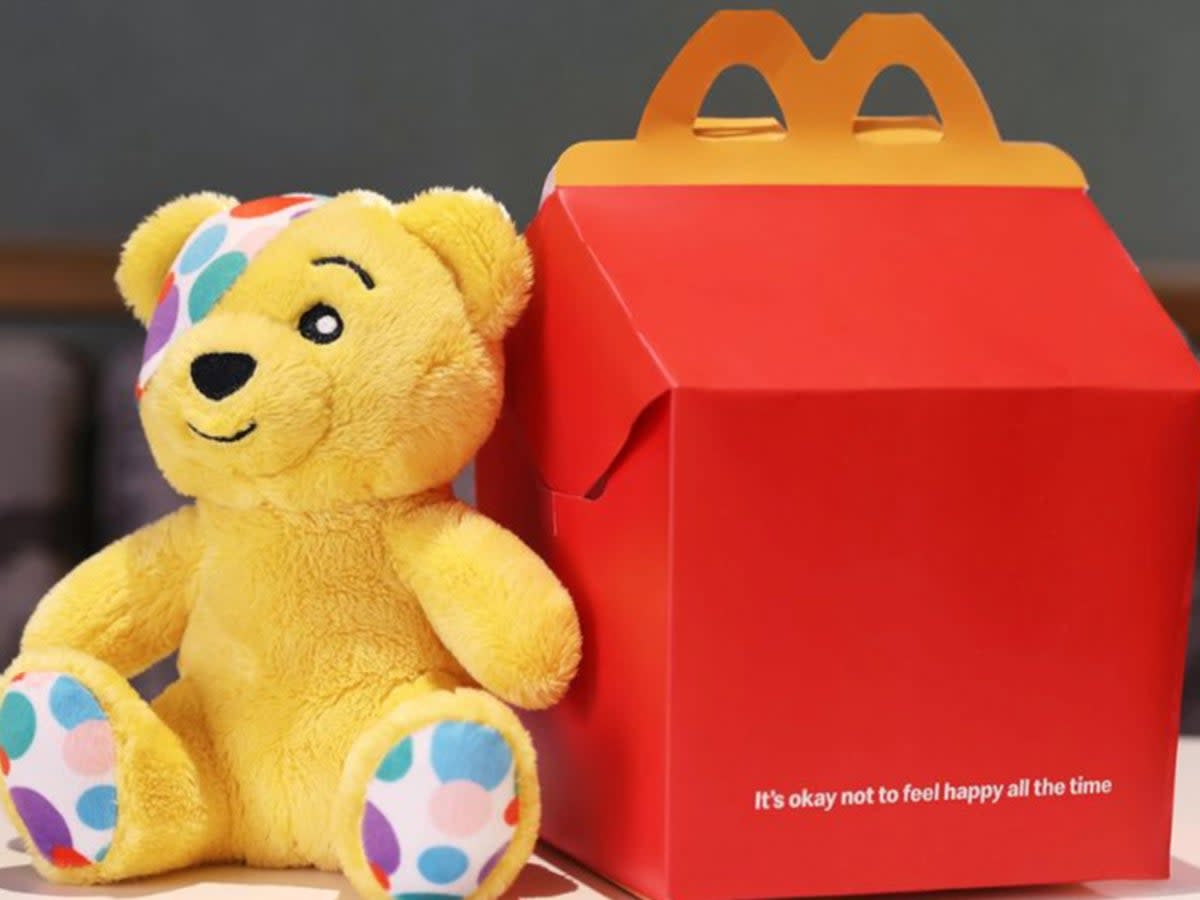McDonald’s drops smiley faces from Happy Meals for mental health week

McDonald’s has dropped smiles from Happy Meals in honour of Mental Awareness Health Week.
From 13 to 19 May, McDonald’s UK division changed the design of their Happy Meals to exclude the iconic smile in recognition of Mental Health Awareness Week. The division also reportedly plans to dub the new iteration simply “The Meal,” notably removing the “happy” from the equation.
The temporary redesign was helmed by Leo Burnett UK and Ready 10, who reportedly wanted the new “meals” to reflect the current mental health decline among UK youth. In a 2020 study from the country’s Office for National Statistics, 48 per cent of children reported feeling pressured to feel happy.
The new design will leave the iconic meals with a blank expression so that children can stick an array of stickers conveying different emotions to suit what they are genuinely feeling. 2.5 million of these new Meal boxes will be shipped to over a thousand locations in the UK, allowing children to get creative with their self-expression and in touch with their emotional side.
Louise Page - the head of consumer communications and partnerships for McDonald’s UK division - explained to TMZ that their goal was to facilitate dialogues about mental health among families.
“We know how important it is to help stimulate open conversations about mental health in families,” she said. “Through this change to our Happy Meal box, we hope many more families are encouraged to kickstart positive conversations around children’s emotions and wellbeing.”
In the ad, McDonald’s centers children’s perspectives, stressing how important it is to have conversations with the youth on the importance of understanding and accepting their emotions. The company partnered with BBC’s Children in Need for the project, which resulted in an online resource that encourages communication on emotional wellbeing.
“Ensuring children are happy is at the top of all parents’ priorities,” BBC Children in Need director of impact and influence Fozia Irfan OBE explained in a company press release. “But allowing children to express themselves and giving them the necessary space to articulate when they aren’t feeling at their best is of equal importance.”
She added, “Mental Health Awareness Week is the perfect opportunity to shine a light on the vital impact we can make on children and young people’s mental wellbeing and we are thrilled to be working with McDonald’s to provide the necessary support parents and families may need to start the conversations with their children.”
Narrated by football star Rio Ferdinand, the ad follows children openly expressing their feelings - the good, the bad, and anything in between. The father-of-five said he drew upon his personal parenting experience to raise awareness about the subject matter.
“I’ve experienced first-hand with my own children how good communication and encouraging kids to embrace how they truly feel can build trust and help to manage emotions – no matter how big or small,” he said in the press release. “It’s our job to empower our children to express themselves freely and support them every step of the way in understanding that it’s okay to not be happy all the time.”
Research indicates that parents are partly responsible for the pressure children feel to be happy, with 74 per cent of parents in the UK reporting they believe preventing their children from feeling sad is important. Meanwhile, two-thirds of parents claimed it was in their children’s best interest to encourage them to be happy.


